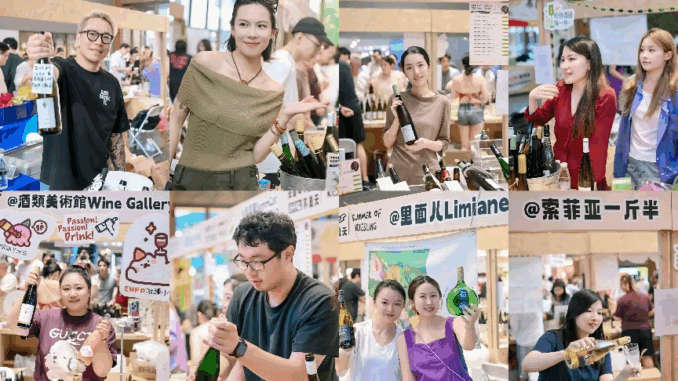
Jeuce Huang of Taste Communications, and the marketing director for Wines of Germany in China, dropped news about a potential sales game-changer when she appeared on the recent Defying the Downturn online panel by Wine to Asia.
In short, Wines of Germany and social media app Xiaohongshu aka Little Red Book teamed up on a major online-offline campaign that is ultimately connected to linking influencers and brands in order to boost wine sales–with a RMB1 million / USD140,000 commission-free incentive to start.
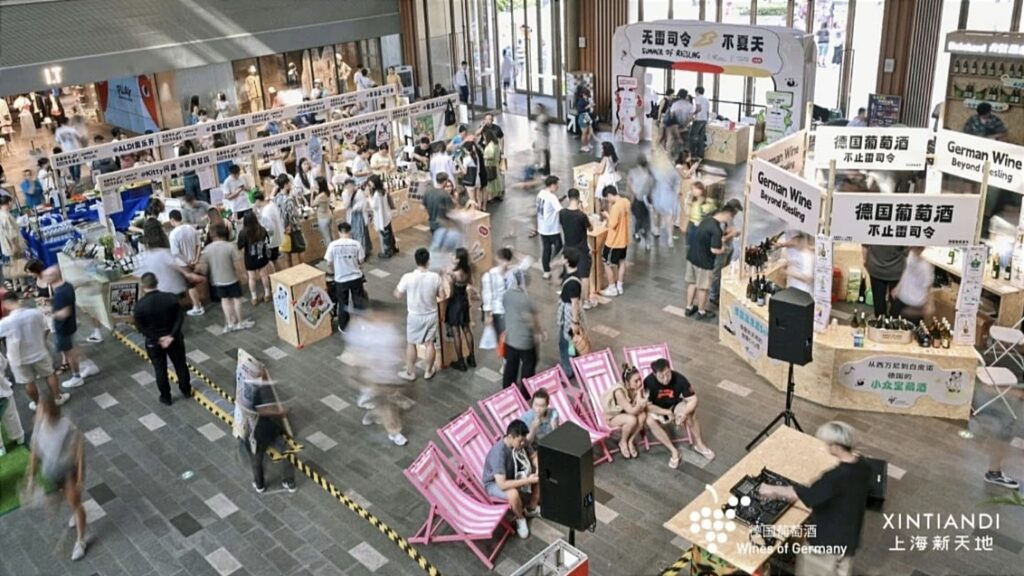
First, the two parties collaborated on a “Summer of Riesling” German wine festival in Shanghai from August 22 to 24 that attracted thousands of consumers and earned praise from the trade. (And to be clear, included German wines made with other grape varieties.)
That event also linked to the online world as eight major Little Red Book wine influencers joined the festival in person with booths.
“They brought over 100 different German wines, interacting face-to-face with consumers,” posted Wines of Germany. “This two-way integration between online and offline not only drove traffic to the market but also channeled the lively offline atmosphere back to the platform, further amplifying the event’s reach.”
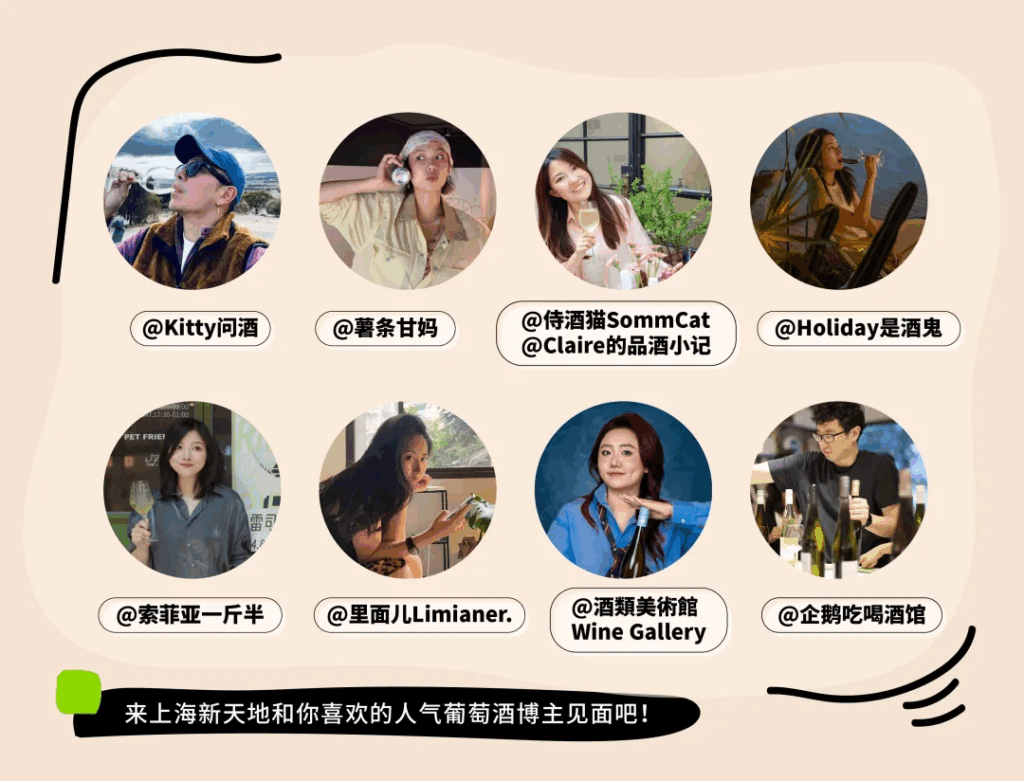
But the potential for sales goes far beyond this.
As the Wines of Germany account explained, Little Red Book created a dedicated page with festival details, info about Riesling and sales points. People searching the app for the festival or for Riesling were redirected to this page—and there were major increases in such searches.
Finally, to top it all, Little Red Book launched a new sales program that brands and influencers can leverage. Before I get to that program, Huang made some insightful points about this project, and Riesling’s general success in China, during the recent Defying the Downturn panel by Wine to Asia and Grape Wall.
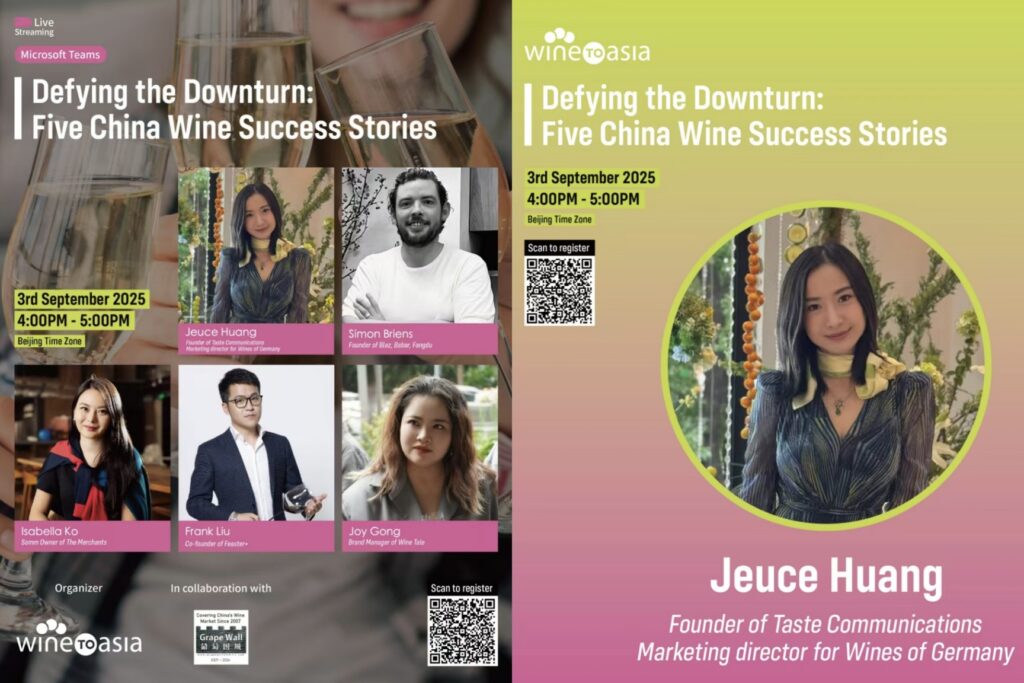
Regional (Association) Differences
For one thing, Huang distinguishes Wines of Germany from and other regional trade associations in China.
“Over the past decade, we have been actively promoting and focusing on consumers, rather than what normal [regional wine] associations do, as their work is mainly B2B-focused,” she explains.
“We created a lot of campaigns around Riesling, such as Summer of Riesling, Riesling’s Birthday and Riesling Weeks. All of these initiatives aim to raise awareness, attract consumers and create emotional connections and consumption scenarios, such as drinking in restaurants, drinking in wine festivals, drinking alone at home, enjoying a moment.”
Huang says a lack of these scenarios is the trade’s biggest challenge: “People don’t know how, when, why they need to drink wine.”
She also says when regional associations focus on B2B, “we are not touching the end consumers, we are only pushing the image or the knowledge or these very complicated things to the trade.”
Associations like Wines of South Africa, Wines of Argentina and California Wines should be taking notes, especially given the popularity of these consumer-based Riesling projects.
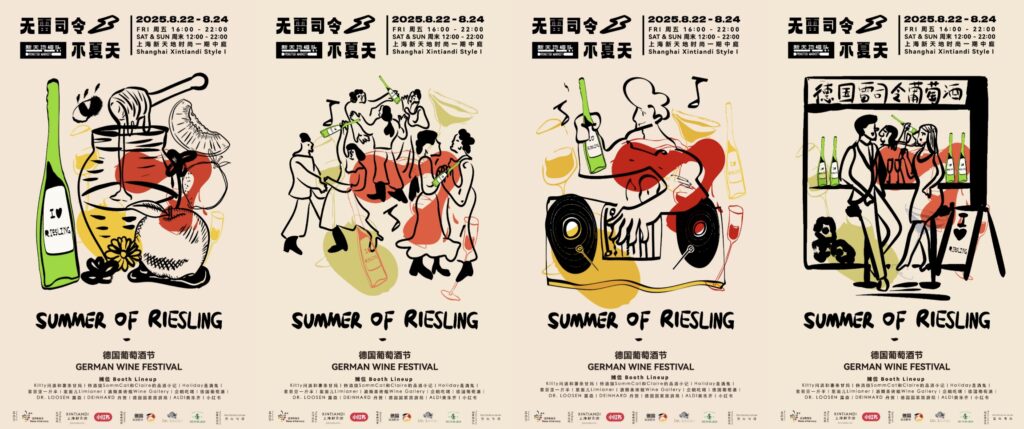
The Ecommerce Challenge
In a similar manner, Huang distinguishes Little Red Book from major platforms as a sales vehicle.
“I think everybody’s talking about e-commerce but it’s also quite diversified,” she says. “Platforms like JD, Tmall and Douyin are very mass [market]. And we see, unfortunately, a lot of bulk wine and cheap stuff, even counterfeits, on these platforms.”
In contrast, she sees Little Red Book as a haven for content creators to do superior wine promotion and education.
“The quality of influencers is much higher on Red Note and the content is softer,” says Huang. “There are very important wine influencers nowadays on Red Book who have turned content creation into an ecommerce platform.”
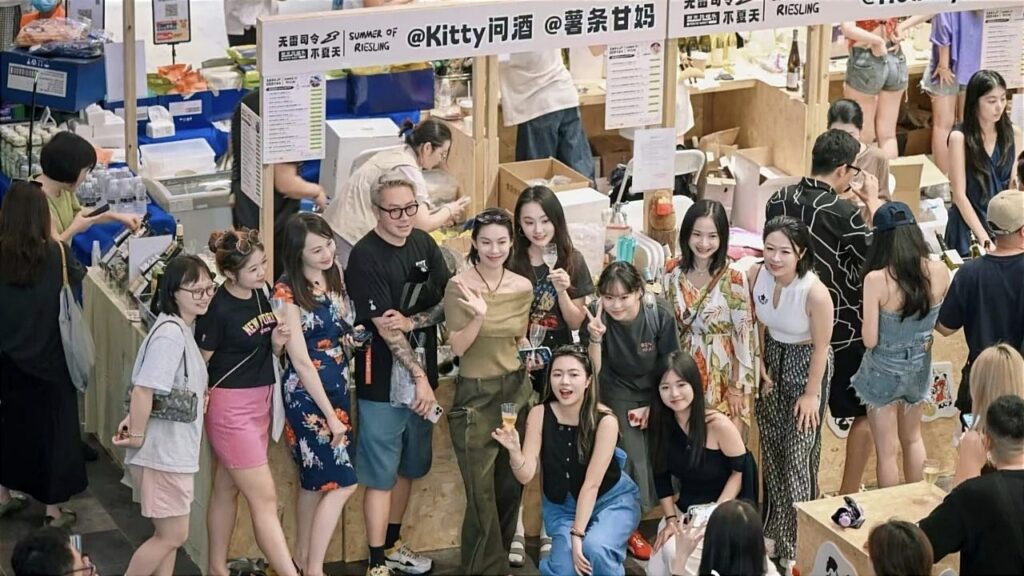
Big Little Red Book Sales
She cites Wang Shenghan aka Lady Penguin as an early example but says many have followed and are doing well: “They are much more interested in boutique selections on Red Note.”
Which brings us to the new sales program on Little Red Note.
Per Wines of Germany, Little Red Book sales volume tripled in 2024 versus 2023, with those of wine up 165 percent. And an important part of this are KOLs, who can not only post content about wines but also are positioned to help sell them.
To this end, Little Red Book has been testing a “marketplace” function to make it easier to shift from learning about wine to buying it.
“Xiaohongshu is gradually forming a virtuous cycle where ‘content drives consumption, and consumption feeds back into content,’” stated the Wines of Germany account. “This provides new growth certainty for alcohol brands and distributors and gives the platform a competitive edge distinct from traditional e-commerce and content platforms.”
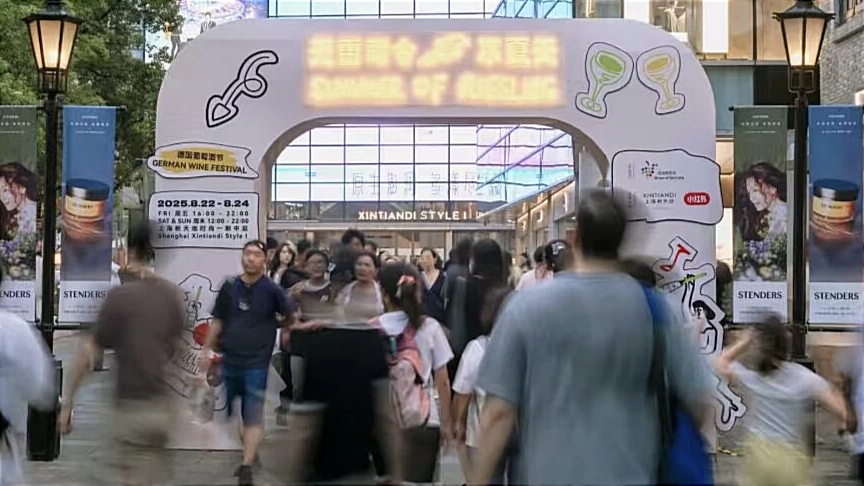
A Million-Yuan Incentive
As an added incentive, the first million yuan (US$140,000) under the new program is commission free for one year from September—note: there is a 0.6% technical service fee—with potential support in terms of shipping costs and marketing efforts.
“The benefits of this method are its low barrier to entry, time savings and reduced effort,” states the post. “Merchants can focus more energy on products and supply chain, while leaving the promotion aspect to KOLs who excel at content creation.”
The post even includes step-by-step instructions for signing up for the program. Check it out here.
I will keep an eye on this program and provide updates, especially given the trust that leading wine influencers are building with followers, and the growing interest among consumers in exploring new products.
(Get the free Grape Wall newsletter here. Follow on LinkedIn, Instagram, Facebook and Twitter. Grape Wall has no sponsors: help support the mission, including World Marselan Day via PayPal, WeChat or Alipay. Contact Grape Wall at grapewallofchina (at) gmail.com.)

Leave a Reply
You must be logged in to post a comment.